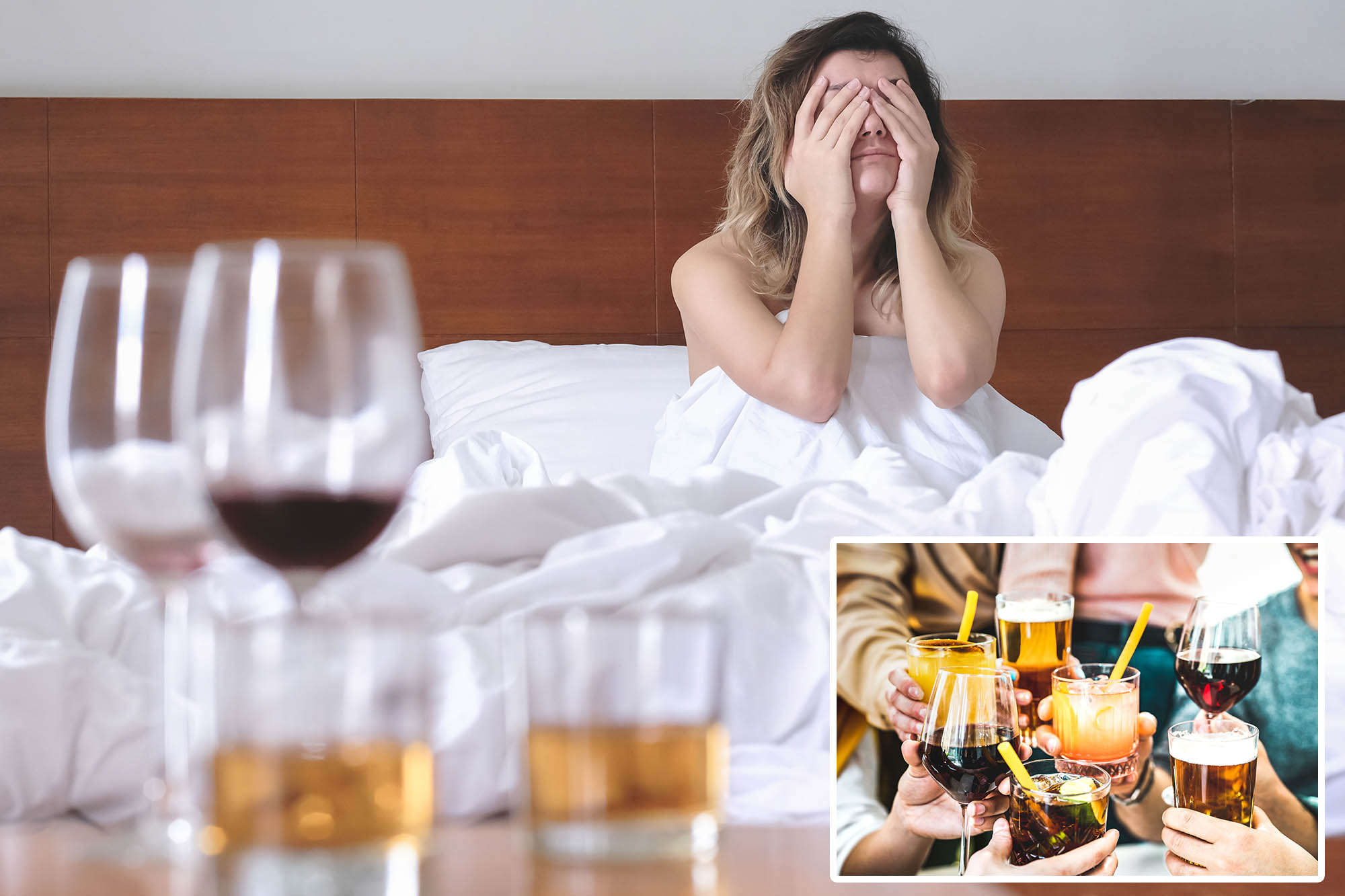
It was a fun night – but you wake up the next morning with a sense of dread, feeling anxious about what you said and did the night before.
You may not have done anything to be ashamed, but this “anxiety” is no joke – and it depends on how alcohol affects your brain and body even after that low feeling is gone.
But not all alcohol is created equal. According to experts, some alcoholic beverages are better at beating morning mood swings, while others are even more likely to wreak havoc on your mental health.
“Almost anyone who drinks any alcohol will experience changes in their brain when they withdraw from alcohol. With a small amount of drink, this can appear as confusion, but after larger amounts, you can have anxiety,” neuropsychopharmacologist professor David Nutt told National Geographic.
This is caused by several factors. Physically, hangovers increase levels of the stress hormone cortisol, while raising blood pressure and heart rate, all of which can make you feel anxious.
It’s also a diuretic, which means it makes you urinate a lot and can lead to dehydration – which can make you feel dizzy, tired and restless.
In addition, there are studies that show that dopamine – the “hormone of happiness” – is lower during a hangover.
But some of that morning-after anxiety is set in motion in your brain the night before. According to Professor Nutt, when alcohol enters your bloodstream, your body adapts by getting drunk. But when your brain senses this, it tries to inhibit control by telling your body to stay awake.
The brain continues to do this well after the alcohol leaves your body – so when you’re no longer drunk the next morning, your brain may still be acting like it’s fighting a sedative, racing your heart and filling you with anxiety.
So what do you do if you still want to return some? Stick to his recommendations below.
beers
Hangxiety is often referred to as the “beer blues,” but beer is actually one of the best options for warding off that feeling.
“Beer is an age-old drink, it was not created for social reasons, or to drink for pleasure, but to keep us hydrated,” Professor Nutt told the Telegraph. “Until the 18th century, almost everyone in Britain drank small amounts of beer instead of water because the (relatively small) alcohol content killed insects that would make people sick.”
It’s also more filling than many other drinks, causing many people to drink less.
Low-alcohol and zero-alcohol beers are also better for your next-day mental health.
Strong seltzer
White Claw and High Noon became super popular mostly because of their relatively low calorie count, but they’re also lower in alcohol than alcohol — so people can drink less — and lower in something called congeners, which comes from fermentation and makes chemicals like acetone, acetaldehyde and methanol.
“Strong seltzers have a very low concentration of congeners, which are thought to contribute to hangover symptoms,” said Dr. Scott Braunstein, MD, for Bumble. “Some alcohols, such as red wine, brandy and whiskey, are known to contain much higher levels.”
About those…
Red wine, brandy and whiskey can present anxiety problems.
Brandy and whiskey are both made in casks which give them more flavor, making them “complex”.
“Complex alcohols, which are more potent than regular alcohol, cause more adaptations in the brain, making you drunker even after drinking smaller amounts, leading to greater hangovers and increased anxiety,” he said. Professor Nutt for the Telegraph.
Red wine is also worse than white because it has tyramine and histamine, which are known to cause anxiety.
#worst #alcohol #drink #ward #anxiety
Image Source : nypost.com